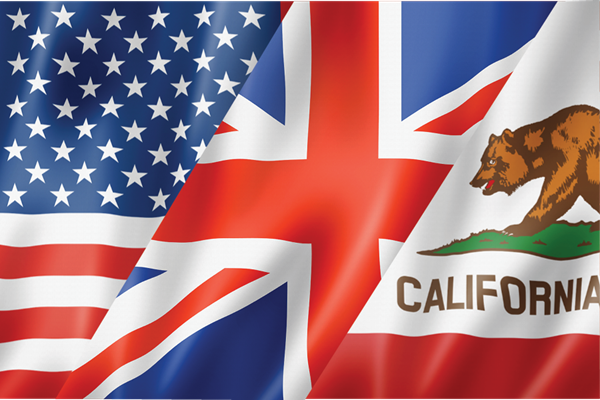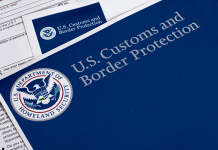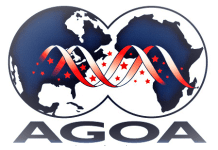 On May 8 — the 80th anniversary of Victory Day for World War II — President Donald J. Trump and Prime Minister Keir Starmer announced a trade deal that will expand U.S. market access in the United Kingdom, creating a $5 billion opportunity for new exports for U.S. farmers, ranchers, and producers.
On May 8 — the 80th anniversary of Victory Day for World War II — President Donald J. Trump and Prime Minister Keir Starmer announced a trade deal that will expand U.S. market access in the United Kingdom, creating a $5 billion opportunity for new exports for U.S. farmers, ranchers, and producers.
Two-way trade between the United States and the U.K. totaled about $148 billion last year, accounting for just 3% of U.S. trade with the world. The United Kingdom is the 11th biggest trading partner of the United States in terms of goods, but the United States is the largest single trading partner for Britain.
The United Kingdom is California’s 12th largest export destination, with roughly $4.99 billion in exports in 2024.
US-UK Trade Deal
Per the White House Fact Sheet, the U.S.-U.K. trade deal:
- Includes more than $700 million in ethanol exports and $250 million in other agricultural products, i.e., beef.
- Commits the countries to work together to enhance industrial and agricultural market access.
- Closes loopholes and increases U.S. firms’ competitiveness in the U.K.’s procurement market.
- Ensures streamlined customs procedures for U.S. exports.
- Establishes high standard commitments in the areas of intellectual property, labor, and environment.
- Maximizes the competitiveness and secures the supply chain of U.S. aerospace manufacturers through preferential access to high-quality U.K. aerospace components.
- Creates a secure supply chain for pharmaceutical products.
UK Autos
The United States will agree to an alternative arrangement for the Section 232 tariffs on U.K. autos.
Under the deal, the first 100,000 vehicles imported into the U.S. by U.K. car manufacturers each year are subject to the reciprocal rate of 10% and any additional vehicles each year are subject to 25% rates.
Steel
The United States also recognizes the economic security measures taken by the U.K. to combat global steel excess capacity and will negotiate an alternative arrangement to the Section 232 tariffs on steel and aluminum.
The May 8 deal creates a new trading union for steel and aluminum.
The Trump administration states The Economic Prosperity Deal with the United Kingdom is a critical step forward in a special relationship to promote reciprocal trade with a key ally and partner and that the action also sets the tone for other trading partners to promote reciprocal trade with the United States.
Economic Prosperity Deal
Also released on May 8 were the general terms for the U.S.-U.K. Economic Prosperity Deal (EPD).
The United States and the United Kingdom expect the Economic Prosperity Deal to address three core objectives, based on fairness and reciprocity:
- To grow the quality and volume of mutually beneficial trade between the United States and the United Kingdom, creating good, high-paying jobs and growth in both countries;
- To remove barriers to make it easier for American and British businesses to operate, invest and trade in both countries; and
- To ensure that the Special Relationship is rooted in an enduring economic partnership that is fair, reciprocal, future-facing, and built on a shared vision of the challenges that face our economies.
This document defines the general terms for the EPD that set forth the shared desires of the United States and the United Kingdom to make bilateral trade fairer, easier, and more substantial — in the areas of addressing tariffs and non-tariff barriers, increasing digital trade, strengthening economic security and commercial opportunities.
Both countries commit to continuing to identify mutually beneficial goods, services, investment opportunities and commercial transactions.
Since Brexit in 2020, the United Kingdom has pushed for new trade agreements with individual countries. On May 6, the U.K. and India signed an agreement that the British government says will increase trade between the two countries by roughly $35 billion a year by 2040.
California-UK Trade
Of California exports to the United Kingdom in 2024, computer and electronic products had the largest total, coming in at $1.48 billion. This was followed by transportation equipment ($614 million), chemicals ($522 million), electrical equipment appliances and components ($317 million), and miscellaneous manufactures ($316 million).
In 2024, imports into California from the United Kingdom were approximately $4.10 billion. Top import categories were transportation equipment ($865 million), followed by non-electrical machinery ($490 million), computer and electronic products ($454 million), electrical equipment, appliances and components ($329 million), and chemicals ($307 million).
The United Kingdom remains California’s top source of foreign-owned enterprise (FOE) employment in 2025, supporting 130,628 jobs across 2,215 establishments. This marks a net gain of more than 17,000 jobs from the previous year, the largest year-over-year increase among all source countries and regions. U.K. investment is concentrated in high-wage, service-driven industries, with more than 43,000 jobs in professional and business services and 26,000 in manufacturing.
CalChamber Position
The California Chamber of Commerce, in keeping with longstanding policy, enthusiastically supports free trade worldwide, expansion of international trade and investment, fair and equitable market access for California products abroad and elimination of disincentives that impede the international competitiveness of California business.
While the details of the U.S.-U.K. Economic Prosperity Deal are pending, the CalChamber generally supports negotiation of new multilateral, sectoral and regional trade agreements, ensuring that the United States may continue to gain access to world markets, resulting in an improved economy and additional employment of Americans.
It should be noted that in the U.S.-U.K. EPD, the reciprocal tariff rate of 10%, as originally announced on Liberation Day, remains in effect.
Also, Britain’s digital service tax, levied at 2% on U.K. revenue for online marketplaces, continues. The tax — affecting companies earning more than $662.37 million globally and more than $33.12 million from U.K. users — has been a point of discussion since first imposed in 2020. It was expected to raise about £800 million ($1.1 billion) this year for the United Kingdom.
Staff Contact: Susanne T. Stirling



